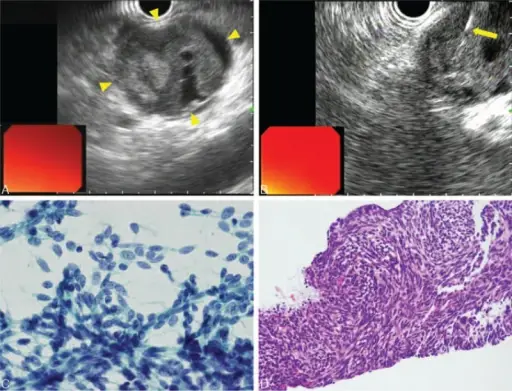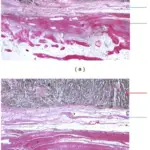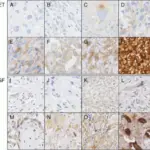Synovial sarcoma is a malignant soft tissue tumor of uncertain histogenesis with variable epithelial differentiation.
What is the Pathology of Synovial Sarcoma?
The pathology of Synovial sarcoma is:
-Etiology: The etiology of synovial sarcoma is poorly understood.
-Genes involved: SS18 and either SSX1, SSX2 or SSX4.
-Pathogenesis: The sequence of events that lead to synovial sarcoma is driven by the chromosomal translocation t(X;18)(p11;q11) involving genes SS18 and either SSX1, SSX2, or SSX4.
-Histology: The histology associated with synovial sarcoma shows poorly differentiated (round cell), monophasic epithelial, calcifying/ossifying, and myxoid findings.
How does Synovial Sarcoma Present?
Patients with synovial sarcoma typically affect males slightly more than females at the age of about 35 years. The symptoms, features, and clinical findings associated with synovial sarcoma include asymptomatic swelling or mass, and fatigue.
How is Synovial Sarcoma Diagnosed?
Synovial sarcoma is diagnosed by biopsy.
How is Synovial Sarcoma Treated?
Synovial sarcoma is treated by surgical resection and radiotherapy.
What is the Prognosis of Synovial Sarcoma?
The prognosis of Synovial sarcoma is poor.



